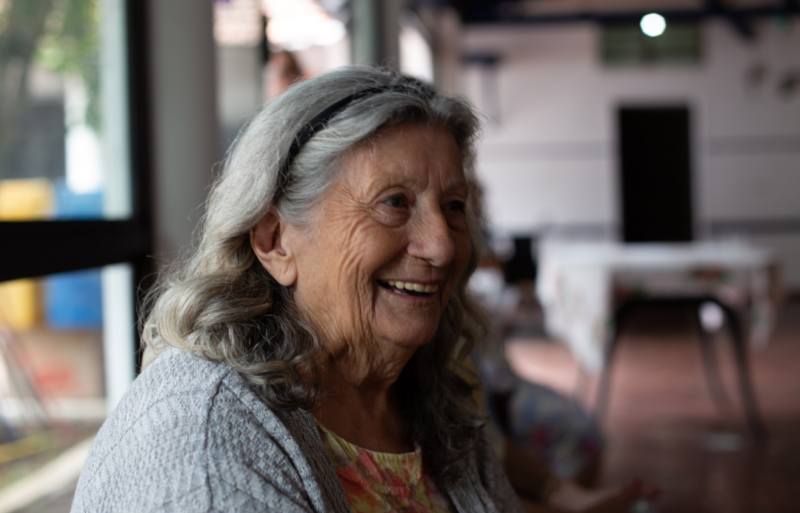You might have noticed that your posture (or that of your Mum or Dad’s) has changed over time, whether it’s a change in position sitting on the couch or completing everyday tasks.
As we age, our posture changes, and with poor posture comes the increased likelihood of falls and injuries.
Upright posture is one of the things that can deteriorate with age. However, the good news is there are several things we can do to minimise or delay the changes in bones, joints and muscles that can contribute to poor posture:
- Exercising regularly is an effective way to maintain/improve your posture because it improves the bone and muscle function that are essential in maintaining a healthy musculoskeletal system.
- Practicing good posture can also help you retain strength needed to accomplish daily tasks and maintain your independence.
- Being mindful of not ‘slumping’ or slouching’ when you sit or stand as a good start to working on promoting good posture.
With this in mind, here are five simple daily exercises for seniors to help promote good posture. They involve motions that feel natural and improve the way we use our bodies in daily activities.
As always, first ensure you can safely complete the exercises by consulting your physio, GP or relevant health professional.

CHIN TUCKS
- Gently pull in your chin while lengthening your neck
- Hold this position for a few seconds
- Relax
- Repeat 10 times
BACKWARDS SHOULDER ROLLS
- Seated or in standing, roll both shoulders backwards
- Making sure you’re not sticking your chin forward when completing this
- Repeated 10 times
HEAD TILTS
- Bring left ear to left shoulder
- Hold for 5 seconds
- Repeat 10 times on left and then complete on right side
HEAD TURNS
- Turn head to the left
- Hold for 5 seconds
- Repeat 10 times to the left and then complete on right side
TORSO/TRUNK TWISTS
- Seated upright on chair with your feet flat
- Turn your body as far as possible towards one side and then towards the other side
- Repeat 10 times
If you notice a change in your posture, or the posture of your Mum or Dad, why not consider a physiotherapy assessment.
A trained physiotherapist can identify the specific causes of postural changes and subsequently develop an individualised treatment program that targets the problem. If you’d like to know more, please contact our client care team to see how we can help you, or your Mum or Dad.
Article written by TPC physio, Mary Cousinery

 1300 797 793
1300 797 793
